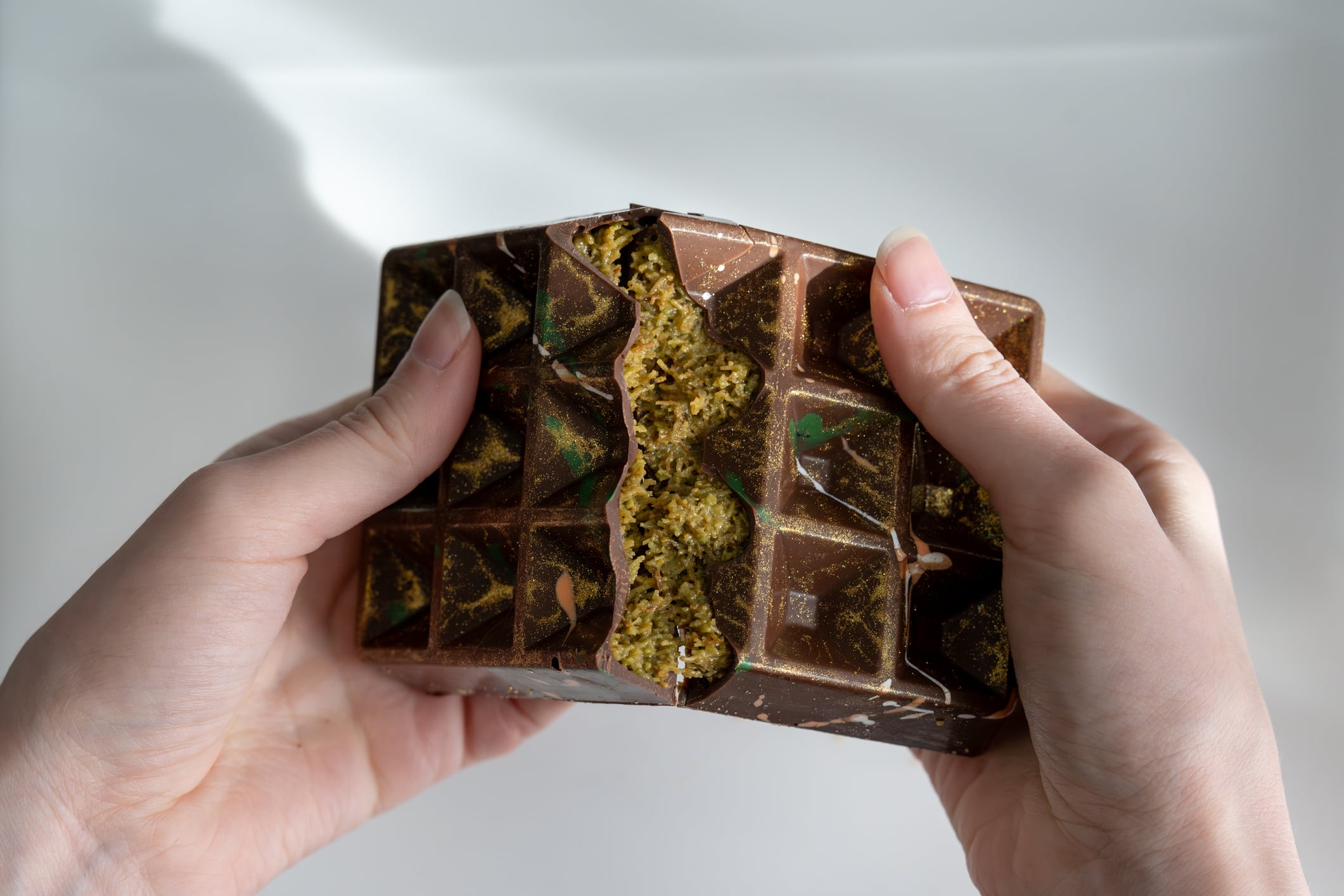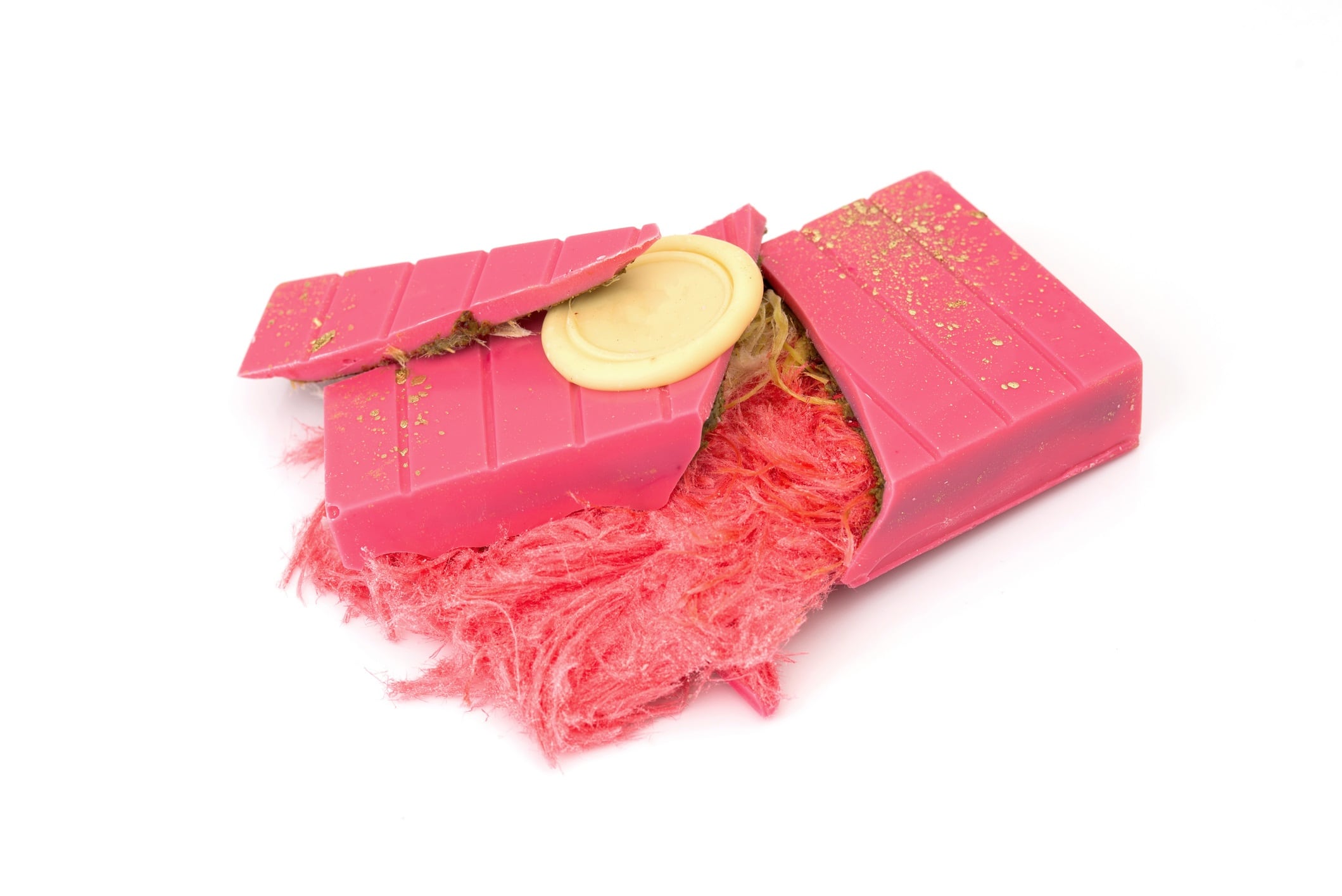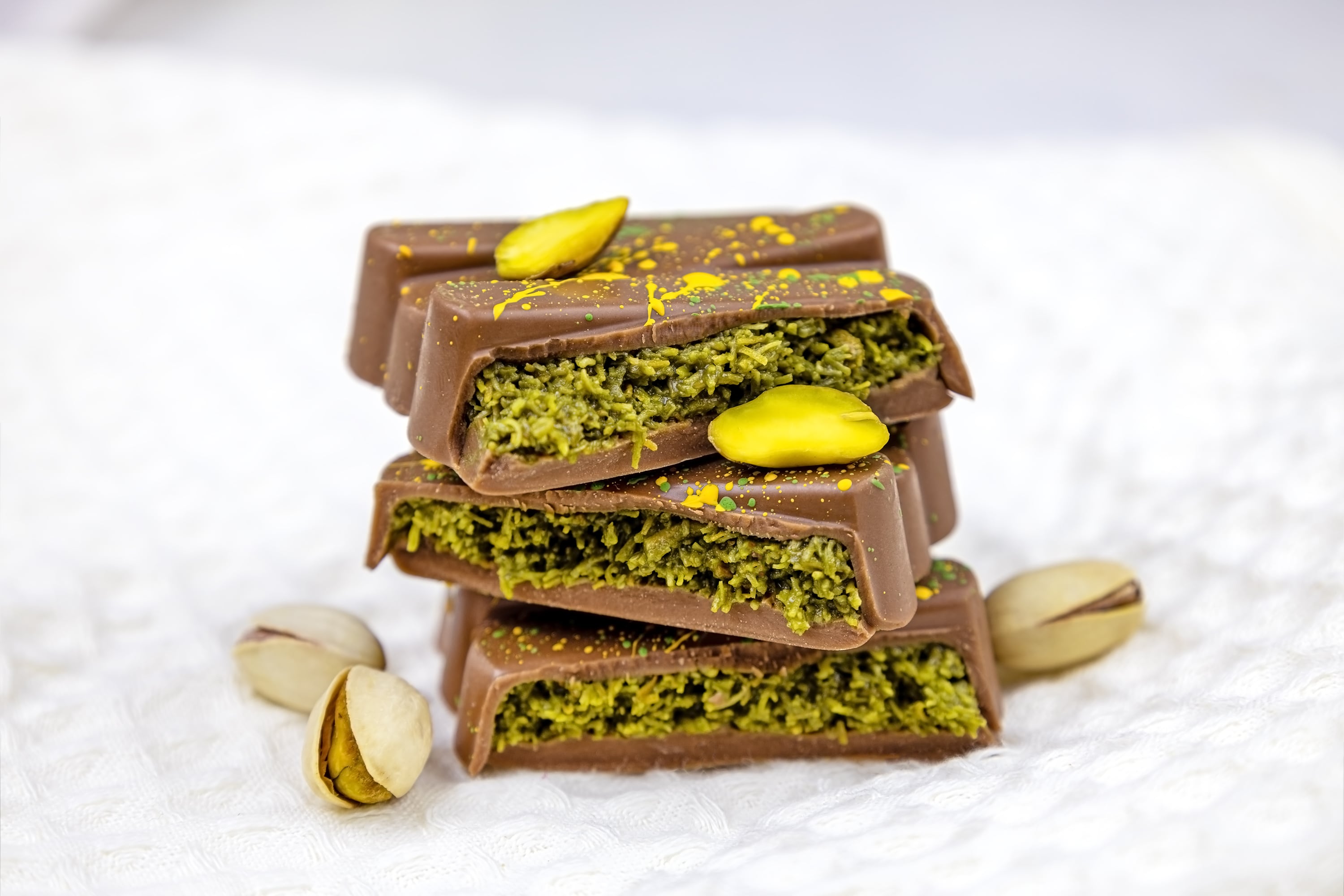Dubai chocolate has taken the confectionary world by storm. The viral treat has already caused a global pistachio shortage and spawned a wide range of imitations (and a pink successor in Angel Hair).
However, the green-coloured confectionary may not always be entirely safe for consumers, according to the UK’s Food Standards Agency (FSA). According to the organisation, bars of Dubai chocolate imported to the UK may not have a full ingredients list or their allergens clearly marked.
By law, products sold in the UK must highlight if they have one of the 14 regulated allergens. As Dubai chocolate is being imported from overseas, allergens which are regulated in the UK might not be in its country of origin.
Most Dubai-style chocolate is safe, the FSA stresses, but some might not be. The FSA has shared its concerns with businesses and industry groups, so they can be removed from the marketplace.
“The vast majority of food in the UK is safe, but some imported Dubai-style chocolate products don’t meet our standards and could be a food safety risk, especially for consumers with allergies,” explains Professor Robin May, chief scientific advisor to the FSA.
What are the UK’s 14 regulated allergens?
According to the FSA, the UK’s 14 regulated allergens are:
- Celery
- Cereals containing gluten (such as wheat, barley, oats and rye)
- Eggs
- Fish
- Crustaceans (e.g. prawns, crabs and lobster)
- Lupin
- Molluscs (e.g. oysters, mussels)
- Milk
- Mustard
- Peanuts
- Soybeans
- Sesame
- Sulphur dioxide and sulphites used as a preservative
- Tree nuts
Dubai chocolate may contain one of these allergens, the FSA suggests, without this being clearly marked. These fourteen allergens are the same as those regulated by the European Food Safety Authority (EFSA), the EU’s FSA equivalent.





